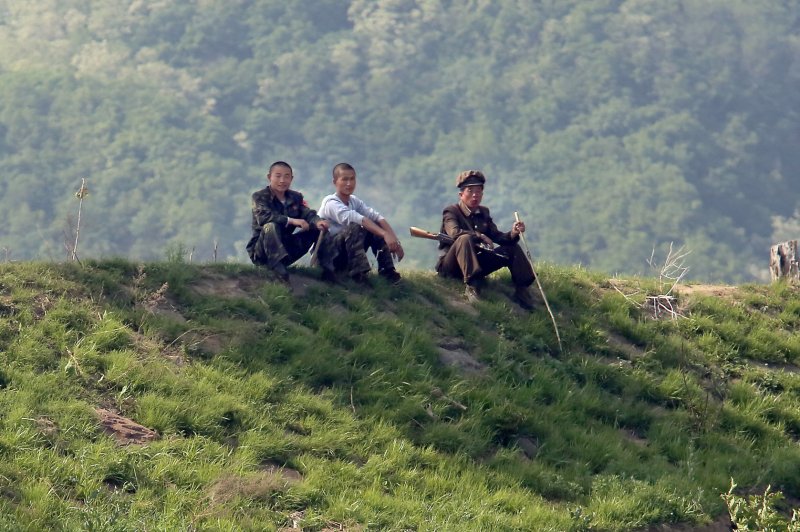North Korean soldiers sit in the shade near the North Korean city Sinuiju, across the Yalu River from Dandong, China's largest border city with North Korea. The state is harassing young North Koreans for not returning to work at stalled state-owned firms, and people are complaining about the "harassment," according to a source in the country. Photo by Stephen Shaver/UPI |
License Photo
April 4 (UPI) -- Young North Koreans who are being harassed by local authorities to report to work at state-owned enterprises are increasingly reluctant to follow orders, sources in the country say.
It may be a sign of the growing importance of marketplaces where about 1.6 million North Koreans now work daily, and earn more income than at stalled or unproductive state-owned plants.
A source in Yanggang Province told South Korean news service Daily NK local wardens are "going from door-to-door and asking residents why they are not reporting to work."
Locals are viewing the house calls as harassment, the source said, adding the younger generation of North Koreans mocks those who still work for the state.
Many have made a living for themselves without the assistance of the Kim Jong Un regime, the source said.
"You have to eat in order to go out and do your job," the source said, adding local authorities are being ungrateful by continuously harassing residents who do not receive state benefits but still choose not to "betray" their country despite the current situation.
The source also said punishment for those who did not report to state firms was "heavy" until 2016, but because of the "deteriorating food situation" in 2017 young people are "responding aggressively," or choosing market activities over reporting to their designated workplaces.
Workplace absenteeism is a serious issue for the state, and in January Kim issued an edict to review and prepare measures to address "unemployment," according to the source, adding the state has been in arrears in payments to workers.
Pyongyang may be turning to the markets for a source of income and legitimacy.
Last week a South Korean government-run think tank said North Korea has legalized more than 400 markets, most likely to expand its influence.















